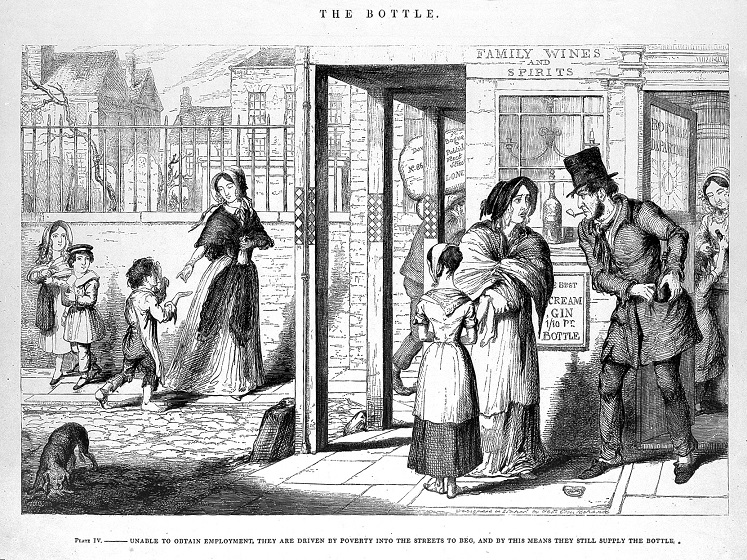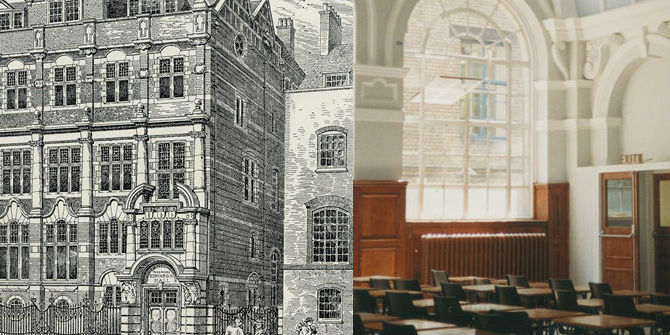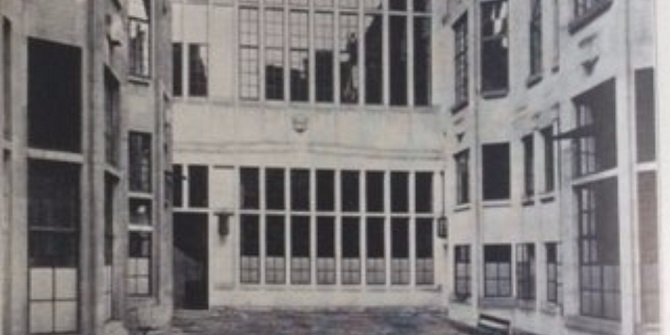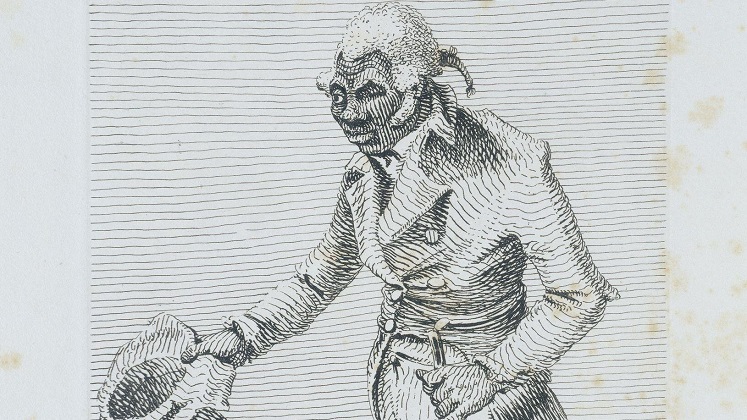Despite a long history, Clement’s Inn was an institution “devoid of famous tradition”. However, while the Inn did not make the history books for prestige in law, it made national news in 1741 for a particularly gruesome murder. Mhairi Gowans takes a closer look and shares newspaper quotes from the British Newspaper Archive.
I am to display a still darker scene; one so ghastly and horrid, so black and bloody, that for our country’s sake, at least, it were heartily to be wished that it had been in any other nation – Matchless Villainy, letter from a gentleman in London to his friend in Hampshire
It all began on Friday 19 June when the footman of John Penny, the Principle of Clement’s Inn and Deputy Paymaster of His Majesty’s Pensions, declared his master missing. The footman, a man named James Hall, informed his master’s nephew, Mr Wotton, that Penny had gone out the day before but had never returned. They began a search, with James Hall asking after his master in all his usual haunts – Dick’s Coffee House in Temple Bar, Somerset House, Hurt’s Coffee House, as well as the waterman who usually took Penny across the river. Mr Wotton meanwhile rode to Richmond to check if he had not gone to see some friends there.
Hall was an obstreperous, ill natur’d, sullen man; inclined to women, drinking, and gaming, for which his good master often reproved him – James Guthrie, The Ordinary of Newgate
As the days went on suspicions arose in the mind of Mr Wotton. He had John Penny’s rooms closed and James Hall committed to prison on Monday 29 June. The very next day the body of his uncle was found naked down one of the Inn’s outhouse toilets. Examination of the body found that Penny’s throat had been cut from ear to ear and the back of his head broken so badly that his brains had come out. His waistcoat had been tied around his head with the assumed purpose of avoiding blood spillage. It was also found that his rooms had been robbed of items including a diamond ring, a shag-green case, a lancet, a knife blade, a silver ear-picker, a pair of tweezers and a green silk purse of twelve guineas and twenty half guineas.
I have seldom or never come to my chambers of a night, but I have found a whore with him, I am persuaded he has several times concealed one all night…I am determined to part with him and tho’ I hate new faces, he is not to be borne with any longer – John Penny’s last words according to his friends, Matchless Villainy, letter from a gentleman in London to his friend in Hampshire
James Hall claimed innocence but Wotton had found blood in Penny’s apartments – on the wainscot, on the pictures, on the boxes and under the bed. Mrs Laws, a Clement’s Inn laundress, also reported that she had been asked by James Hall to clean up blood on the morning of the 18th, the day after John Penny was last seen. James Hall claimed that the smeared blood was due to a nose bleed that his master had the night before.
I gave him the Chamber-pot to bleed into…after the bleeding was stopt, he let it go before I had hold of it, which falling on the floor, broke, which was the occasion of the room being stained with blood – James Hall, the Ordinary of Newgate
While he was in prison at Newgate proclaiming his innocence, James Hall was planning his escape along with his cell inmate, a “notorious highwayman”. Their plan was rumbled by the Turnkey and Deputy Keeper who, suspicious, decided to enter their cell at midnight. They found that the two prisoners had smuggled in pistols, bullets, gunpowder and two saws and that James Hall had begun to file his fetters off. The Derby Mercury congratulated the jail staff, stating that their alertness meant that “two of the greatest villains” were still under lock and key.
Following this failed escape, and with his wife also having also been imprisoned, James Hall finally confessed. He said he had planned the murder for about a month and had raised an oak stick eight to ten times with intent – but that his heart had failed him each time. The reason for the murder was financial – Hall owed £6 (£790 in today’s money). Feeling desperate, he got drunk and decided to finally do the deed. In his confession, he also admitted that, in addition to his escape attempt, he had hired a lawyer to source false witnesses.
Having confessed, James Hall was sentenced. English law at the time classed the murder of a master by a servant as petty treason. This means that James Hall was to be drawn on a hurdle to the site of execution and his remains put on display after death. Thus, on Monday 14 September, James Hall was drawn from Newgate Prison in the City to the Strand where he was hung. His body remained on the scaffold for three-quarters of an hour, whereupon it was taken down and sent to Shepherd’s Bush, where it was hung in a gibbet for at least six years.
Yesterday morning about eight o’clock, Richard Ashcroft and John Cooke, the two smugglers, were carried, under a strong detachment of the guards, from Newgate to Tyburn, and executed pursuant to their sentence; after which their bodies were hung on a gibbet at Shepherd’s Bush, in the Acton Road, near James Hall, who was executed in the Strand – Derby Mercury, Friday 31 July 1747
Newspaper quotes were sourced using the British Newspaper Archive





